Create A Shield With Essential Oils
Shield yourself and your loved ones this cold and flu season with nature's gifts of pure essential oils.
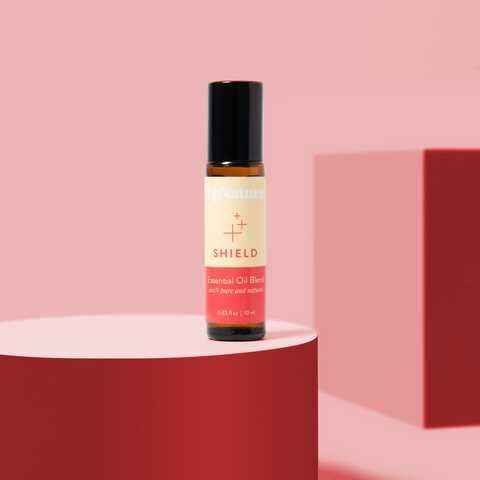
This cold and flu season could be different, by trying a different approach to your health and wellbeing. In this blog, I will run through ways in which essential oils and their use through aromatherapy, can help support you through a time when many viruses proliferate. At this time our bodies are having to cope with a change in seasons and temperature. Add with Thanksgiving and Christmas on the way, our diets perhaps won't be as healthy as usual, with extra treats and bigger portions. We are around many more people than usual in close proximity, some of which may have a cold or be coming down with the flu. You may be traveling, sleeping in different environments than we are used to. All of which can increase stress and make us more susceptible to catching a bug or two.
But fear not. It doesn't have to be this way. You can learn how to best take care of ourselves and create some added protection to keep you on top form and ready to enjoy yourselves this holiday season.
The emphasis in this blog will be on helping to boost the body's innate immunity that is already working hard to keep you well, whilst at the same time offering some useful information on how the use of essential oils can support you if you do succumb to a cold or flu virus. Helping you get back to full health in no time and ease those horrible symptoms.
If you had a chance to read my previous blog post Top 5 Essential & Carrier Oils To Use This Fall, hopefully, you will have already started to prep your bodies against the cold and flu viruses. It is great to start early, however, it is never too late.
Prevention Is Better Than Cure
Let's face it, there are viruses everywhere, just waiting to make us unwell. Fortunately, though our immune systems are there as our armor, ready for when the viruses attack. When it comes to staying healthy, especially during cold and flu season we need our immunity in the best form so as not to succumb to illness.
There are many factors, which can affect the efficacy of our immune systems. Consider the following areas of your health and wellbeing and if there can be any improvements made? such as stress levels, sleep quality, nutrition and our exposure to viruses (minimizing this with excellent hand hygiene, especially during cold and flu season).
So let's take better care of ourselves so that we function as well as we can.
Beneficial Properties Of Essential Oils During Cold And Flu Season
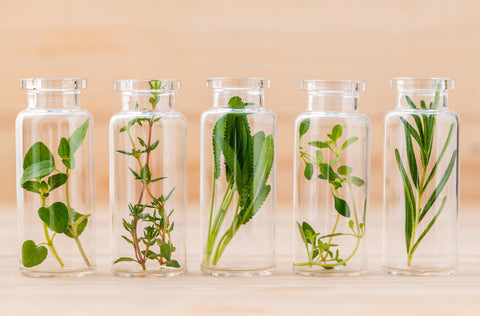
Essential oils are made up of various natural chemical components. these various types of constituents create different properties in each essential oil. This is what the particular oil is known to be useful for. Below I will list the properties which can be useful during the cold and flu season.
Analgesic
Pain-relieving
Antibacterial
Combating or inhibiting bacteria
Anticattarhal
Expectorant, aiding the elimination of mucus
Antimicrobial
Destroying or preventing the development of microorganisms
Antipyretic
Reducing fever or inflammation
Antitussive
Relieving the symptoms of or desire to cough
Antiviral
Opposing the actions of viruses
Calmative
Having a calming or sedating action
Cephalic
Stimulating and clearing the mind - Pertains to the head
Febrifuge
Reducing fever
Immunostimulant
Encouraging the immune system of the body to function properly.
Mucolytic
Thinning the composition of respiratory mucus, making it less sticky
Nervine
Pertaining to the nervous system, tonic to the nervous system, neurotonic
Prophylactic
Preventative
Respiratory Decongestant
Releasing phlegm, congestion or mucus
10 Beneficial Essential Oils To Help Protect You During Cold And Flu Season
Whether you are hoping to boost your immunity and support yourself or have already become unwell and would like some help to lessen the symptoms and hasten recovery. I will detail some great essential oils below to help you on your road to recovery.
Texas Cedarwood
Juniperus mexicana
This essential oil is perfect for and most suited for use in inhalation applications. It is a powerful essential oil with known to have strong antibacterial, antiviral, mucolytic and expectorant properties. It is a respiratory tonic and can help aid the relief of symptoms from respiratory infections. Furthermore, It's aromatherapeutic sedative and nervous system tonic properties may help support with anxiety and stress, again having a positive effect on the immune system.
Citronella
Cymbopogon winterianus
Citronella essential oil isn't only for keeping the mosquitoes away in summertime. It actually has some very useful properties to help during cold and flu season, such as being reported to have antibacterial properties. "The aldehyde content suggests that Citronella oil has excellent antimicrobial properties. It is recommended as an inhalation against colds, flu, and minor infections" It is also known to be beneficial for the nervous system, helping to relieve fatigue and may help alleviate fatigue, with its fresh aroma. Perfect for clearing the mind from the effects of congestion.
Clove Leaf
Syzigium aromanticum
Clove Leaf essential oil is another very powerful essential oil and is best used via inhalation applications, which make it ideal for use during the cold and flu season. It is known for its strong antimicrobial, antiviral, disinfectant properties. It is also stimulant to the nervous system, so it helps with a much-needed lift when energy levels are flagging.
Copaiba
Copaifera reticulata
I wanted to include this essential oil as it is incredibly useful for supporting the nervous system, helping to reduce stress and anxiety, which as we know can have a negative impact on our immune systems. It can also help to support our sleep.
Frankincense
Boswellia serrata
Frankincense is a rejuvenating essential oil on all the bodily systems. It is a tonic to the nervous and immune system and has immunostimulant properties. A respiratory tonic, with anti-inflammatory, antiseptic, astringent and expectorant properties.
Sweet Basil
Occimum basilicus CT estragole
Basil essential oil, is full of bug busting properties. It is again a stimulant to the nervous system and helps to focus and clear the mind, which can become very foggy when it is full of cold and congested. Another one to use via inhalation methods only, due to its very powerful constituents.
Dutch Lavender
Lavandula intermedia
Dutch Lavender, aka Lavandin, has some really wonderful properties to help with colds and flu. It is known to be an immune system tonic and immunostimulant helping our immune systems to function properly. Its benefits to the respiratory system are down to it's Antibacterial, Anticattarhal, Antimicrobial, Antispasmodic and respiratory calmative properties. Also being a great nervous system tonic with its Nervine and calmative properties, it should help ease stress and tension fatigue, headaches and earache.
Lemongrass
Cymbopogon
I wanted to include Lemongrass essential oil as it is a wonderful tonic to the immune system. It also boasts antimicrobial and bactericidal and antiseptic properties.
Tea Tree
Melaleuca alternifolia
Tea Tree essential oil is used widely and best known for its germicidal properties. It is indicated for respiratory use, with Antimicrobial, Antiseptic, antiviral, bactericidal, expectorant properties.
Lemon
Citrus limonum
Lemon essential oil has a refreshing and uplifting aroma, which can be really helpful when you are feeling under the weather. With its powerful antimicrobial properties, it is easy to see why I included it in my list of go-to cold and flu oils.
Top 5 Most Helpful Application Methods For Immune And Respiratory Support.
There are certain methods of applying essential oils, which suit the particular benefits that you are hoping to achieve. When it comes to immune and respiratory support you will hopefully find the following methods beneficial.
Diffuser

Diffusing essential oils is a great way of inhaling them. It works so well as a sickroom disinfectant, to try and help prevent others from catching the same illness. Using essential oils in this application also has the benefit of lifting the mood, by the nervous system properties of the oils listed above, which can help to alleviate stress and tension, which then has a positive effect on the immune system. Ideal for use in UpNatures NEW essential oil diffuser. Simply add between 3-8 drops depending on room size to the water in your diffuser and enjoy the incredible aroma as it fills your space.
Nasal applicators
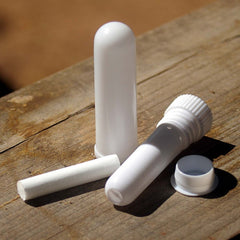
For all those stuffy, congested noses and sinus headaches, this is such a helpful way of administering the essential oils. You can purchase blank aromatherapy nasal inhalers easily and cheaply online. Then simply add between 2-4 drops of your chosen essential oil/s onto the inner cartridge and reassemble the inhaler securely. Take with you on the go and inhale from as and when needed for relief. This is a personal way to enjoy the benefits of essential oils, without others smelling the aromas.
Steam Inhalation

Steam inhalation is mostly used for respiratory conditions. Remove any contact lenses or spectacles and keep eyes closed. Sprinkle 4-8 drops of essential oils onto a bowl of just-boiled water, cover head with a towel and inhale for 5-10 minutes until water has cooled and no steam rises. You can also inexpensively purchase an inhaler cup which is more convenient to use. 2-4 drops should suffice. It can be repeated as needed up to 8 times a day. Caution with the boiled water.
Roll-Ons
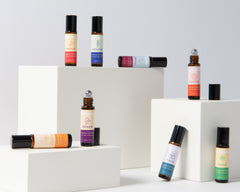
Luckily UpNature have recently launched a whole range of ready to roll roll-ons. My picks for cold and flu season are Shield, Breathe, Dream and Peppermint. Roll-ons are such an easy and convenient way to use essential oil and so easy to just pop in your purse for travel in the holiday season. They make a fantastic gift too!
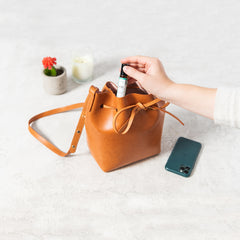
If you get the chance you can read my previous blog post Top 10 Aromatherapy Application Methods for even more ideas on how to safely and effectively use essential oils.
Remember Your Carrier Oils
Please bear in mind that before using essential oils topically, they must be diluted with a suitable carrier oil.
How To Use Essential Oils Safely (and therefore effectively)
Essential oils are powerful natural substances that can help support us through their various properties and actions. It is also important to realize that just because something comes from nature, it doesn't mean it is automatically safe to use however we please, (Take poison ivy as an example).
However luckily for us, when used with a little bit of knowledge and within a few simple guidelines, essential oils can be a great tool to help support our health and wellbeing. It's not about being scared to use them. It's about understanding how to get the most from the, safely. Using them correctly will mean they work more effectively. The saying less is more applies in Aromatherapy.
I'm sure that if you are interested in essential oils and aromatherapy, you will have inevitably come across misinformation with regards to their usage. The problem lies when the source of that information comes from an untrained person. Always consult someone trained in the correct usage of essential oils... an aromatherapist. Which is why I wanted to offer you some helpful guidelines so that you can access the most benefits from your essential oils, without side effects.
To get the most out of your essential oils
Consult a trained aromatherapist before using essential oils if you have a medical condition, are taking medications, are pregnant/ breastfeeding, have any allergies, or if you have any other concerns. Essential oils are powerful substances, which make them so helpful. It just means that there can be some contraindications with certain oils if you have any of the above circumstances. So it's important to follow specific advice, which I'm sure is well worth the time and investment.There may be essential oil specific guidance. Ensure that the essential oil you have chosen is suitable for you. Does it have any safety precautions to consider? Some do, some don't. Your aromatherapist will advise on the above circumstances. For anything else such as sensitive skin, please refer to our
UpNature ebooks on the particular oil, you have purchased for more in-depth information.
Make sure your essential oils are correctly diluted if applying topically, using the topical use chart above.
There is no such thing as an official internal use graded essential oil. These are just phrases that have been coined but have no basis. They make things confusing. Whilst it is true that, yes, essential oils are used in the food manufacturing industry, however, this is only in tiny, highly controlled quantities. It doesn't automatically mean they can be ingested in other settings, even if they have been labeled for such use. Be cautious of terms such as internal use, food-grade. Or any advice to drink a drop or two in a glass of water. I would advise you never to do this. Never use essential oils internally. There is no benefit to this practice. Oils are not water-soluble and will not, therefore, dilute when dropped into water. Undiluted essential oils should not be used on the skin, so imaging the effect on your delicate internal organs. If this is something that you still want to pursue and I understand that you might already be convinced due to the current trend of marketing this unsafe practice has received, please, at the very least make an appointment with a highly trained aromatherapist to discuss this further.
Refrain from using undiluted on the skin. Only in emergencies and with a few limited essential oils. Again refer to an aromatherapist for specific exceptions.Precautions You Should Take When Using Essential Oils For Colds and Flu Relief
If you are not sure how to use essential oils for cold and flu relief, ask for the advice of your doctor or a licensed natural health practitioner.
If you are pregnant, suffer from hypertension or have epilepsy, you should avoid rosemary and clove bud essential oils. Again, ask your doctor of any questions.
Remember that essential oils with a citrus note are sensitizing and phototoxic, so use these oils sparingly, especially if you are going outdoors.
Although reactions are rare with proper use, always perform a patch test before using a new essential oil to ensure you will not have an allergic response to it.
And, if you found this information useful, please “Like it” and share it with your friends so that they can learn how essential oils for colds and flu relief can help them, as well.
*NOTE THAT THIS ARTICLE IS FOR INFORMATIONAL PURPOSES ONLY, AND FOR ANY MEDICAL CONDITION, YOU SHOULD SEEK THE ADVICE OF YOUR DOCTOR.
Let us know how these beneficial essential oils helped support you this fall in the comments below!
*Please note: The suggested applications need to be appropriately diluted. There may also be essential oil specific guidance - please refer to our UpNature eBooks or consult an aromatherapist for more in-depth information.
Shop these and all of our essential oils on UpNature!

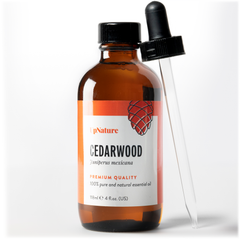
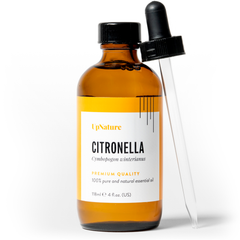
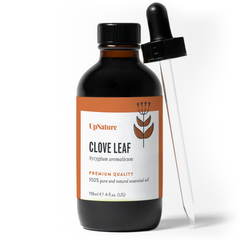
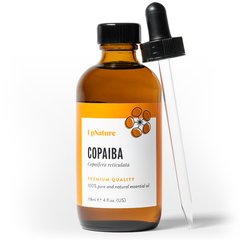
Comments (2)
nabil on December 19, 2019
thanks for sharing benefits of natural essential oils with therapy .Also check these beauty products .
kay yopung on November 21, 2019
love your posts
Back to Blog